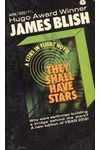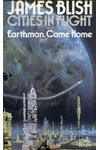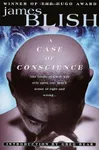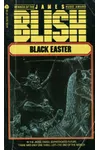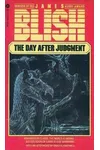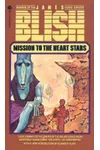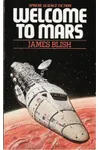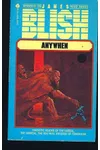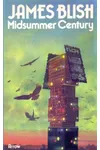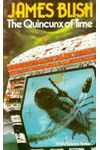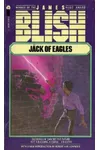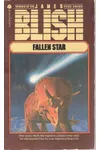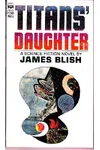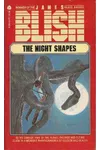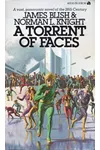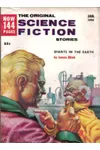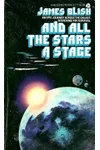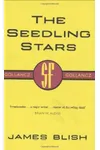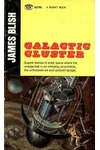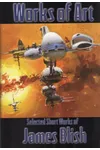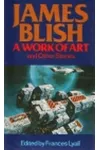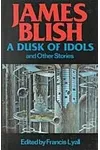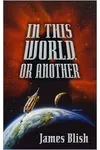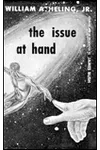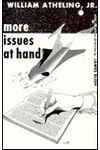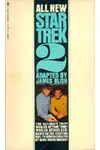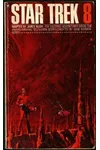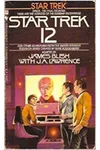Picture an American storyteller who sent entire cities soaring through the stars—meet James Blish! Born in 1921, this Hugo Award-winning science fiction author blended hard science with boundless imagination, crafting tales that still captivate readers. From his groundbreaking Cities in Flight series to his iconic Star Trek novelizations, Blish redefined sci-fi with wit and wonder.
As a young fan of pulp magazines, Blish dove into the genre’s early days, eventually becoming a literary trailblazer. His stories tackled big ideas—faith, technology, human survival—while keeping readers hooked with vivid worlds and sharp prose. Let’s explore the life, works, and lasting impact of this sci-fi visionary.
The Making of James Blish
James Benjamin Blish was born on May 23, 1921, in East Orange, New Jersey. As a teenager, he was already knee-deep in sci-fi, editing a fanzine called The Planeteer and rubbing elbows with the Futurian Society, a group of young writers like Isaac Asimov and Frederik Pohl. After earning a zoology degree from Rutgers in 1942, Blish served as a medical technician in the U.S. Army during World War II. He briefly studied at Columbia University but ditched academia to chase his true passion: writing fiction.
Blish’s first story, “Emergency Refueling,” hit Super Science Stories in 1940, marking the start of a prolific career. His early work in pulp magazines honed his craft, blending his scientific knowledge with speculative flair. Married to fellow Futurian Virginia Kidd in 1947 (and later to artist J.A. Lawrence in 1964), Blish’s personal life was as dynamic as his stories.
James Blish’s Unforgettable Stories
Blish’s Cities in Flight series (1950–62) is his magnum opus, a four-novel saga where cities, powered by “spindizzy” antigravity devices, roam the galaxy like cosmic nomads. These “Okie” tales mix space opera with deep musings on society and survival, showcasing Blish’s knack for grand yet grounded storytelling. They Shall Have Stars kicks off the series, exploring humanity’s quest for immortality and interstellar travel.
His 1958 novel A Case of Conscience snagged a Hugo Award, diving into a Jesuit priest’s moral dilemma on an alien planet. This gem from the After Such Knowledge series probes the clash between science and faith, proving Blish’s ability to weave philosophy into gripping narratives. Blish also penned Star Trek novelizations (1967–75), adapting nearly every original series episode with his wife, J.A. Lawrence. His original Star Trek novel, Spock Must Die! (1970), thrilled fans with fresh adventures.
Short stories like “Surface Tension” (1952), about microscopic humans engineered for alien worlds, highlight Blish’s microbiology expertise and imaginative scope. His style—cerebral yet accessible—made complex ideas feel personal, earning him a spot in The Science Fiction Hall of Fame. Blish also coined the term “gas giant,” now a staple in astronomy, showing his influence beyond fiction.
Why James Blish Matters
Blish wasn’t just a storyteller; he was a sci-fi critic who raised the genre’s bar. Writing as William Atheling Jr., he called out sloppy writing and shaky science in fanzines, with essays later collected in The Issue at Hand (1964). His critiques pushed authors to aim higher, shaping the sophisticated sci-fi of the 1950s and beyond. Blish’s concepts, like the Dirac communicator for faster-than-light messages, inspired countless writers.
Despite battling lung cancer, Blish wrote until his death in 1975, leaving a legacy preserved at Oxford’s Bodleian Library. Inducted into the Science Fiction and Fantasy Hall of Fame in 2002, his work continues to spark curiosity about humanity’s place in the cosmos. For fans and newcomers, Blish’s stories remain a thrilling blend of intellect and adventure.
- Born: May 23, 1921, East Orange, New Jersey
- Died: July 30, 1975, Henley-on-Thames, England
- Key Works: Cities in Flight, A Case of Conscience, Star Trek novelizations
- Awards: Hugo Award (1959), Science Fiction and Fantasy Hall of Fame (2002)
About James Blish
Snag A Case of Conscience or Cities in Flight and dive into James Blish’s mind-bending sci-fi today!
